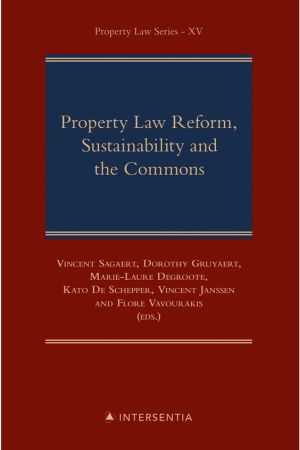
This book is the outcome of the international conference ‘Property law reform, sustainability and the commons’, which was hosted by the Institute for Property Law at the Faculty of Law and Criminology of KU Leuven in March 2023. The occasion of this conference was the holistic and innovative Belgian property law reform, which is part of the larger establishment of a brand new Belgian Civil Code. The goal of the conference, and hence of the book, was to engage with (both junior and more senior) property law experts from different legal systems to critically assess this Belgian property law reform from an international perspective by comparing it to other, recent and not so recent, property law reforms.
Apart from the Belgian property law reform, the last few decades also marked the reform of the Chinese Civil Code (2020), the Argentinian Civil Code (2015), the Civil Code of Hungary (2013), the Romanian Civil Code (2009), and others. The authors shed light on whether and to what extent recent property law reforms are different from the earlier generation of law reforms of the second half of the 20th century, such as the Dutch Civil Code (1992) and the Quebec Civil Code in terms of sustainability and the commons. The authors address whether the property law reforms provide an answer to the societal challenges of the early 21st century. Is property law future-proof and can it serve as a tool to foster a more sustainable society and to protect natural resources? These questions are dealt with in this book.